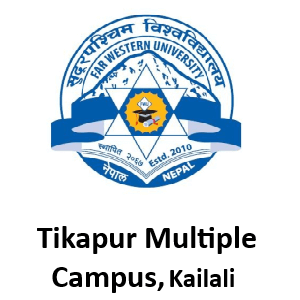Overview
Master of Arts in Rural Development (MA RD) at Rastriya College
The Master of Arts in Rural Development (MRD) at Rastriya College, Sukhad, is a two-year postgraduate program affiliated with Tribhuvan University.
It provides students with the knowledge and analytical tools needed to understand and address the complex issues faced by rural communities in Nepal.
This program is designed for those who want to contribute to local development planning, policy research, and community transformation.
It connects academic theory with Nepal’s rural realities through classroom learning, case studies, and field-based research.
Objectives
-
Develop a critical understanding of rural development theories and their practical applications.
-
Strengthen skills in planning, monitoring, and evaluating rural development projects.
-
Prepare professionals for leadership roles in NGOs, government agencies, and community-based initiatives.
-
Promote research on local development, poverty, gender, and resource use
Course Structure
The MRD program is divided into four semesters over two academic years. It includes:
-
16 courses (compulsory and elective)
-
Thesis or Term Paper in the final semester
-
Total Credit Hours: 60
Semester-wise Structure:
| Semester | Focus Areas |
|---|---|
| 1st | Theories of Rural Development, Research Methods, Rural Sociology |
| 2nd | Development Economics, Gender Issues, Environment and Sustainable Development |
| 3rd | Governance, Planning, Entrepreneurship, Electives |
| 4th | Thesis Writing or Term Paper, Seminar, Project Work |
Teaching Methodology
The course uses lectures, case analysis, group discussions, and project-based learning. Students also participate in fieldwork to study real-world development issues in rural settings.
Learning Outcomes
Graduates will be able to:
-
Analyze rural development challenges from multiple perspectives
-
Design and assess development policies and programs
-
Conduct field-based research with practical relevance
-
Engage effectively in rural leadership and institutional planning
Admission Criteria
Applicants must hold a Bachelor’s degree in Rural Development or any discipline from a recognized university. Selection is based on academic records and college-level entrance procedures.
Facilities at Rastriya College
-
A dedicated library with development journals and resources
-
Internet, computer lab, and multimedia tools for research and presentations
-
Mentorship support for thesis and field projects
-
Access to counseling, seminars, and skill-based workshops
Career Prospects
Graduates can pursue roles such as:
-
Rural Development Officer
-
Program Coordinator in NGOs/INGOs
-
Local Government Planner
-
Policy Researcher or Field Analyst
-
Community Education or Advocacy Worker
Scholarships and Support
Rastriya College provides financial support to students from marginalized, remote, or economically vulnerable backgrounds, based on both merit and financial need.


















